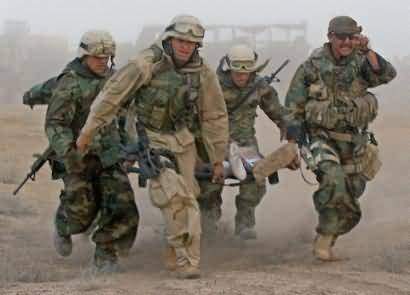When President Obama announced that he was sending an additional 30,000 American troops to work under Gen. McChrystal’s leadership in Afghanistan, his very next sentence stated that US forces would be starting a withdrawal 18 months later on July 2011. I was critical of this at the time and still am. The US and the President are in a difficult position and all agree that we should not be in Afghanistan in perpetuity, but I feel that publicly announcing a withdrawal date works too much in the advantage of the Taliban-led insurgency. As George Will aptly put it, ‘The Americans are going home; the Taliban are home.’ The Taliban have been called many things, but ‘impatient’ isn’t one of them. The Obama administration is betting that this surge in troops following the guidance of Gen. McChrystal’s hybrid counterinsurgency/special forces strategy can create breathing room for the Afghan state to grow enough that it can prevent A. A Taliban takeover of the south or the country as a whole B. a safe haven for Al Qaeda and their ilk.

The Taliban are obviously aware of this goal and since their existence and future hold on power is directly threatened, one should expect them to fight on. Negotiations between President Karzai’s government and US/NATO with certain Taliban leadership and factions is a constant topic and it is to believed that a key reason for the American surge is to bring about an environment of Kabul government strength/Taliban weakness that pushes the talks in the former’s favor. Buuuuuuttttt, this is where the announced withdrawal date comes into play and it’s not in a positive way. We are already 1 year and 2 months from July 2011 and only half of Obama’s 30,000 troops have arrived. The Marja offensive in Helmand has been a short-term success, but it’s long term prospects are at best tentative and the coming surge into Kandahar will be much more difficult. We constantly here that the ‘holding’ of the territory is the crucial part of McChrystal’s counterinsurgency plan, but once again I turn to Mr. Will, ‘what can be held by a counterinsurgency force focused on an exit strategy?’ It is important to remember that the Obama administration (mainly in the voice of Secretary of Defense Robert Gates) has given much leeway in the extent of a withdrawal, specifically in terms of timing and troop numbers and no one should be surprised to hear the President announce that troops will be needed to stay and fight longer, but nevertheless a message has been sent that the US plans to get out sooner rather than later.
National Security Correspondent for the Washington Examiner Sara A. Carter recently did a report on military personnel’s views of Obama’s Afghan strategy and particularly of the set withdrawal date, and they are not pretty. The report comes with caveats as most of those military personnel quoted are either retired or anonymous and the piece only features comments critiquing the administration. Nevertheless, it is important to hear some words spoken by those in the trenches. Here are some of the them:
Retired Army Reserve Maj. Gen. Timothy Haake, who served with the Special Forces, said, “If you’re a commander of Taliban forces, you would use the withdrawal date to rally your troops, saying we may be suffering now but wait 15 months when we’ll have less enemy to fight.”
A former top-ranking Defense Department official also saw the policy as misguided.
“Setting a deadline to get out may have been politically expedient, but it is a military disaster,” he said. “It’s as bad as [former U.S. Secretary of State] Dean Acheson signaling the Communists that we wouldn’t defend South Korea before the North Korean invasion.”
Another U.S. soldier stationed in Afghanistan said that “making the announcement of a withdrawal date was a signal of defeat.”
He added, “It’s not whether we withdraw a little or a lot, but it’s the point we’re making. Once we made it public, the Taliban knew we weren’t going to stick it out, and I think that little bit of hope is all they need to keep going.”
Those in charge of the decision making for this troubled, yet critical foreign policy decision deserve our sympathies as these are life and death choices that will affect the future of the US, Afghanistan, Pakistan, NATO, etc. for years to come. As I said before, the Obama administration has given itself enough wiggle room to backtrack on this withdrawal date if they believe it is not in the best interests of the country at the time, but there will be domestic political ramifications. (I believe these will be smaller than some claim, but there is definitely a portion of Obama’s base that would be very disappointed if they saw him as leading us deeper into ‘another intractable war’.) However, what will disappoint the American public the most would be the use of our human and financial resources on a strategy that may be flawed from the very beginning.
I’m a believer in the McChrystal strategy and believe the US cannot leave Afghanistan to just drones and small special forces. President Obama made a brave decision to back Gen. McChrystal and provide the war effort with badly needed resources. But I remember flinching in my seat when in his West Point speech he followed up the 30,000 troop announcement with the words of ‘withdraw’ literally seconds later. We deserve a winning strategy all the way through.